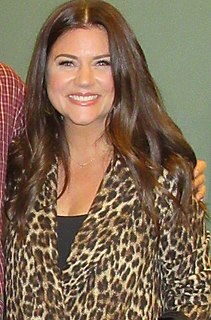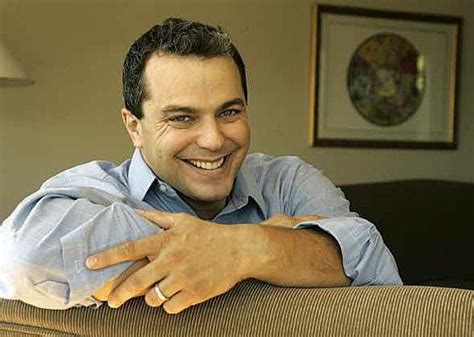A Quote by David Tennant
Some people live more in 20 years than others do in 80. It's not the time that matters, it's the person.
Related Quotes
Each time I do a trilogy it's ten years out of my life. I'll finish Episode III and I'll be 60. And the next 20 years after that I want to spend doing something other than Star Wars. If at 80 I'm still lively and having a good time and think I can work for another 10 years between 80 and 90, I might consider it. But don't count on it. There's nothing written, and it's not like I'm completing something. I'd have to start from scratch. The idea of a third trilogy was more of a media thing than it was me.
Economists often talk about the 80/20 Principle, which is the idea that in any situation roughly 80 percent of the “work” will be done by 20 percent of the participants. In most societies, 20 percent of criminals commit 80 percent of crimes. Twenty percent of motorists cause 80 percent of all accidents. Twenty percent of beer drinkers drink 80 percent of all beer. When it comes to epidemics, though, this disproportionality becomes even more extreme: a tiny percentage of people do the majority of the work.
If you're going to do a memoir, then it's sort of at this age - in your late sixties or seventies - that you do it. I don't understand people who do memoirs when they're 20. I think most people need a little more time than 20 years to become the person they are. In fact, that process of becoming who you are is still ongoing when you get older, where you go, "Let's see where my next 10 years is going to take me." S
Why do some people have to go barefoot so that others can drive luxury cars? Why are some people able to live only 35 years in order that others can live 70 years? Why do some people have to be miserably poor in order that others can be extravagantly rich? I speak for all the children in the world who don't even have a piece of bread.
Antisthenes used to say that envious people were devoured by their own disposition, just as iron is by rust. Envy of others comes from comparing what they have with what the envious person has, rather than the envious person realising they have more than what they could have and certainly more than some others and being grateful. It is really just an inability to get a correct perspective on their lives.



































